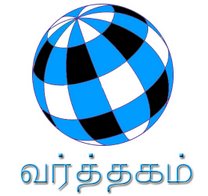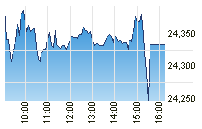1.What is ESOP ?
ESOP is short form of Employees Stock Option Plan. Under this plan, companies provides employees a plan by which the employees get an option to acquire shares of their employer company over a period of time at a reduced price or nil price. Therefore ESOP is primarily a kind of incentive to hold the employees to the company's fold .Therefore, question of taxing this perquisite and capital gains at the time of sale of shares received by the employees arise.
2.What are the new taxation scheme of ESOP?
The new scheme of taxation of Employees Stock Option Plan initiated by Finance Bill passed on 11th May 2007 and effective from 1/4/2007 is as follows
No taxation of perquisite in hands of employees.
Employer to pay Fringe Benefit Tax at the time vesting of shares in Employees.
Employee to pay capital gains tax at the time of sale of shares received under ESOP.
3.Fringe Benefit Tax To Be Paid By Employer
Section 115WB1(d) has been inserted in the I T Act to bring ESOP under FBT . The said provision and explanation therein made it explicitly clear that ESOP is under FBT
any specified security or sweat equity shares allotted or transferred, directly or indirectly, by the employer free of cost or at concessional rate to his employees (including former employee or employees).
4. How the value for fringe benefit on ESOP computed?
Section 115WC(1)(ba) gives the method of valuation of ESOP for the purpose of imposing fringe benefit tax. The said provision under 115WC(1)(ba) is as under
the fair market value of the specified security or sweat equity shares referred to in clause (d) of sub-section (1) of section 115WB, on the date on which the option vests with the employee as reduced by the amount actually paid by, or recovered from, the employee in respect of such security or shares.
What the aforesaid provision states in simple terms is
Fair market value (FMV) of shares has to be taken for valuation purpose.
The valuation date for FMV is the date on which the shares are vested in employee.
The value of fringe benefit shall be FMV reduced by amount paid by employee.
The FBT will be charged @ 33.99%
5. How the Fair market value is determined?
As per explanation, Central Board of Direct Taxes will come out with method of Fair Market Valuation . CBDT has not come out yet.But one should expect that FMV shall be almost equal to average rate on either NSE or BSE on the date of valuation.
6.What is this vesting of shares?
Under ESOP , an employee is given an option of buying the share of companies at a reduced priced. The Option is a Right but no obligation. Therefore , date of vesting of shares means the date when the company allots shares to employee.
7. What happens when employee sells the shares received under ESOP?
The gains shall arise on sale of those shares. The value of capital gains shall be computed by reducing the cost of acquiring such ESOP shares from the sale consideration. For determining the cost of acquisition section 49(2AB ) has been introduced from 1/4/2007 so as to provide that fair market value taken for computing the FBT by the employer shall be taken as COST of acquisition of shares. The exact wordings of section 49(2AB) is as under:
Where the capital gain arises from the transfer of specified security or sweat equity shares, the cost of acquisition of such security or shares shall be the fair market value which has been taken into account while computing the value of fringe benefits under clause (ba) of sub-section (1) of section 115WC.
Let us take an example.
A company announces an ESOP plan under which company will allot 500 shares of company to certain employees at a price of Rs 100. Those eligible employees will have option of getting allotment of 100 shares on 1st day of October every year starting from 1/4/2007 for next five years.Let us say, Mr X an employee fills out the ESOP application form on 1.7.2007 for allotment of shares . He is allotted 100 shares on 1/10/2007 . The market value on 1/10/2007 , (vesting day) is RS 500. These 100 shares , let us think , hypothetically, sold by the employee on 31/3/2009 at a price of RS 1200. Then
FBT to be paid by the employer company will be 33.99% on (Rs500-Rs 100)x 100 nos=Rs 16000.Since the vesting date is 1/10/2007 ,FBT will be paid in the year of vesting i.e FY 2007-08 .
There will be long term capital gain on 31/3/2009 since the the shares allotted on 1/10/2007 are hold for more than one year. The long term capital gains shall be computed as under
Sale consideration RS 1200 x 100 = Rs 1,20,000
Less
Cost of acquisition is FMV for FBT purpose i.e Rs 500x 100 =Rs 50,000
Long Term Capital Gains = Rs 70,000
Please note
for simplicity , indexation of cost has not been done otherwise indexation benefit shall be given in case of long term gains and that will substantially reduce the tax liability.
The tax on sale of shares may be nil if aforesaid shares are sold through stock exchange by paying securities transaction tax because long term capital gains on shares are exempt from tax.







0 comments:
Post a Comment